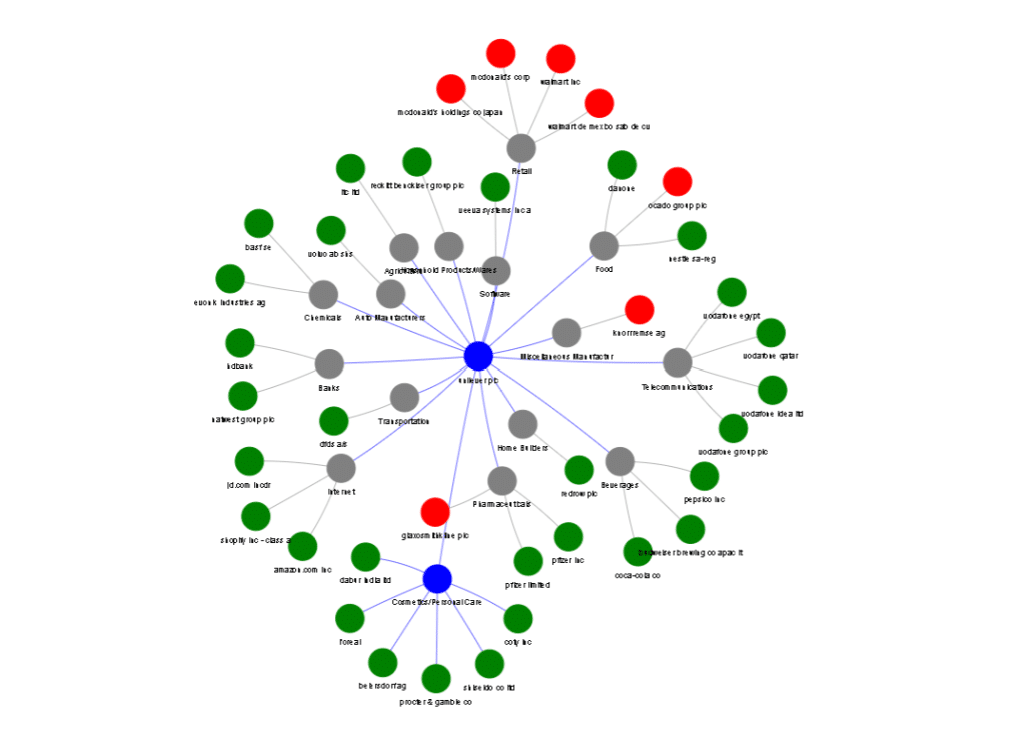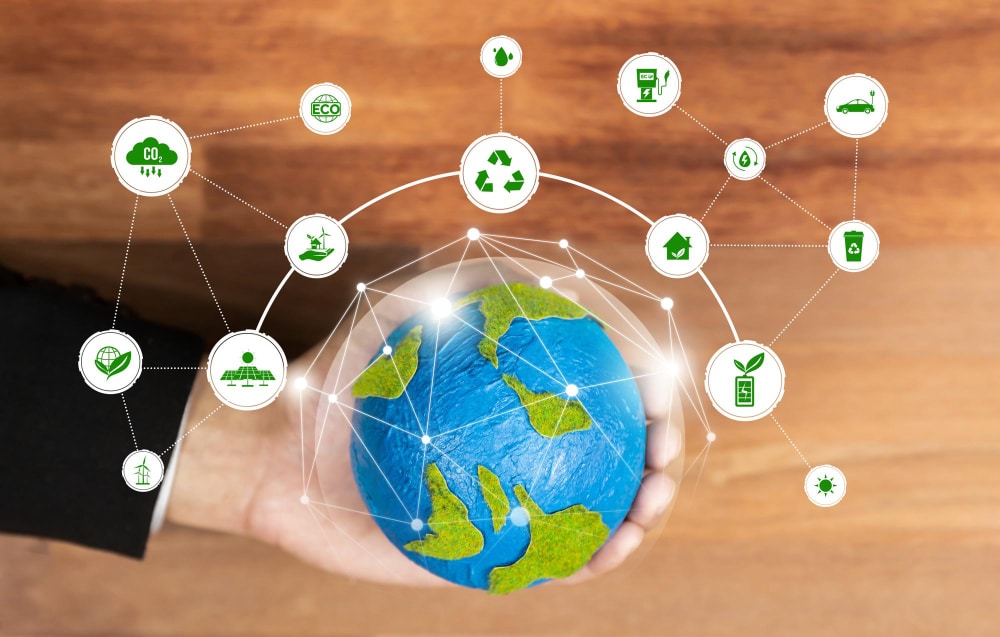Supply chains play a crucial role in the global economy, connecting producers, manufacturers, and consumers around the world. However, the traditional model of supply chains has often been criticised for its negative impact on the environment, communities, and workers involved. This has led to a growing demand for ethical excellence in supply chains, where companies, like Unilever, prioritise sustainability, social responsibility, and transparency in their operations. Unilever supply chain sustainability efforts have become a benchmark in the industry for integrating environmental and social governance into business strategies.
Unethical practices in supply chains can have far-reaching consequences, from deforestation and pollution to exploitation and unfair labour practices. The negative impacts can be devastating for both people and the planet. Consumers are becoming increasingly aware of these issues and are demanding more transparency and accountability from the companies they support. In response, businesses are recognising the importance of ethical excellence in supply chains as not just a moral obligation but also a strategic advantage. Unilever supply chain sustainability initiatives have shown significant progress in addressing these challenges by embedding sustainable practices throughout their global operations.
Unilever, the global consumer goods company, is at the forefront of this movement towards ethical excellence. With a deep understanding of the interconnectedness of the global supply chain, Unilever has made sustainability and social responsibility central to its business model. By prioritising ethical practices, Unilever supply chain sustainability efforts have not only improved its reputation but have also gained a competitive edge in the market. Let’s explore how Unilever has achieved this and the impact it has had on the world.

Above: Unilever’s first order supply chain relationships using Permutable AI’s Supply Chain Network Analysis tool
Unilever’s commitment to sustainability
Despite a recent downshift in their sustainability goals, Unilever’s still remains commitment to sustainability pursuing more tangible as opposed to more aspirational goals. It’s longstanding relationship with sustainability to which it is now entering a maturity phase, is rooted in its belief that business success should go hand in hand with environmental and social progress.
The company has is driving forward the green revolution by setting ambitious goals to reduce its environmental footprint and being a strong player in environmental stewardship whilst also improve the lives of millions of people through its Sustainable Living Plan. This plan, launched in 2010, outlines Unilever’s commitment to three key areas: improving health and well-being, reducing environmental impact, and enhancing livelihoods. Unilever supply chain sustainability is a critical component of achieving these goals. Meanwhile, The Unilever Compass is their roadmap and strategy for delivering a sustainability agenda that works to drive climate action to reach net zero, reduce plastic as part of a waste-free world, regenerate nature and agriculture, and raise living standards in their value chain.
To achieve these goals, Unilever has implemented a wide range of initiatives across its supply chains. One of the key areas of focus is sustainable sourcing, where the company works closely with farmers and suppliers to ensure that raw materials are produced in an environmentally and socially responsible manner. This includes initiatives such as the Sustainable Agriculture Code, which provides guidelines for sustainable farming practices, and the Responsible Sourcing Policy, which ensures that suppliers adhere to strict ethical standards. Unilever supply chain sustainability practices are instrumental in driving positive change across its global operations.
In addition to sustainable sourcing, Unilever has also made significant investments in renewable energy and waste reduction. The company has set a target to be zero emissions in their operations by 2030 and net zero emissions across our value chain by 2039. Unilever has also made efforts to reduce waste throughout its supply chains, implementing recycling and waste management programmes to minimise its environmental impact. Unilever supply chain sustainability initiatives in these areas are leading by example in the transition to a more sustainable business model.
Unilever’s sustainable sourcing practices
Unilever supply chain sustainability is viewed as the cornerstone of its ethical excellence in supply chains. The company recognises that sourcing raw materials responsibly is critical to reducing its environmental impact and improving the livelihoods of farmers and workers. Unilever works closely with its suppliers to ensure that raw materials are produced in a way that protects ecosystems, conserves natural resources, and supports local communities.
One example of Unilever’s sustainable sourcing practices is its work with smallholder farmers. The company recognises that smallholder farmers play a crucial role in global food production and often face significant challenges, including limited access to resources, market opportunities, and technical knowledge. Unilever has implemented various initiatives to support these farmers, such as providing training and resources to improve agricultural practices, promoting fair trade, and offering long-term contracts to secure their livelihoods. Unilever supply chain sustainability efforts in this area demonstrate a commitment to improving the economic well-being of smallholder farmers.
Unilever also places a strong emphasis on responsible palm oil sourcing. Palm oil is a widely used ingredient in many consumer products, but its production has been linked to deforestation, habitat destruction, and human rights abuses. Unilever has been actively working to address these issues by sourcing palm oil from certified sustainable plantations and supporting initiatives to promote responsible palm oil production. The company is a founding member of the Roundtable on Sustainable Palm Oil (RSPO) and has committed to sourcing 100% of its palm oil from certified sustainable sources by 2023. Unilever supply chain sustainability practices in palm oil sourcing are part of its broader efforts to ensure ethical and sustainable supply chains.
Unilever supply chain sustainability: What the critics say
The above is no doubt very encouraging, yet with all companies on their supply chain sustainability and transparency journey, there is still plenty of work to be done.
Unilever continues to come under scrutiny for the sustainability of its supply chain in recent years. One of the primary concerns has been the sourcing of palm oil, a key ingredient in numerous Unilever products. Critics, including environmental groups like Friends of the Earth, have highlighted that, notwithstanding Unilever’s commitments to sustainable palm oil, issues such as deforestation and exploitation remain prevalent within its production chain. While there has been progress towards responsible sourcing, achieving complete transparency and addressing these challenges within complex supply chains continues to be a significant hurdle for Unilever.
Another critical area of concern is packaging waste. Unilever has established goals to mitigate plastic packaging use and augment the recycled content within its products. However, critics and sustainability advocates argue that the pace of progress in this area has been insufficient and that they are still complicit in the plastic crisis. Despite these efforts, there’s a consensus that Unilever must intensify its innovation and investment strategies to tackle plastic pollution more effectively. This sentiment is echoed in reports from sustainability-focused publications, which call for a more aggressive approach to reducing supply chain plastic and enhancing overall sustainability measures.
The impact of Unilever’s sustainable supply chains
The journey towards sustainability within the supply chain is a complex and ongoing process, and Unilever’s efforts in this arena are both commendable and critical. Despite facing criticism, particularly in areas such as palm oil sourcing and packaging waste, Unilever’s initiatives signify a significant step forward in the global movement towards more ethical and sustainable business practices. The company’s commitment, as seen through its Sustainable Living Plan and the more recent Unilever Compass, showcases a genuine approach to tackling some of the most pressing environmental and social challenges of our time.
Unilever’s work with smallholder farmers and its drive towards responsible sourcing are pivotal in promoting environmental conservation and enhancing livelihoods. These efforts, along with the company’s commitment to achieving net-zero emissions in its operations and across its value chain by 2039, reflect a deep-rooted commitment to not just corporate sustainability but also to global sustainability goals.
However, the path to a truly sustainable supply chain is fraught with challenges. The criticisms levelled at Unilever highlight the need for ongoing vigilance, innovation, and, importantly, action. The issues surrounding palm oil sourcing and packaging waste underscore the complexity of achieving sustainability in a global supply chain and the need for a multifaceted approach that includes not just corporate initiatives but also policy change, consumer behaviour shifts, and broad-scale industry collaboration.
As Unilever continues to navigate these challenges, its journey offers valuable insights and lessons for other corporations aiming to integrate sustainability into their core business strategy. The global consumer goods company’s efforts underscore the importance of setting ambitious sustainability targets, the need for transparency and accountability, and the critical role of collaboration across the entire supply chain.
Unilever’s supply chain sustainability efforts, while subject to critique, represent a significant stride towards ethical excellence in global supply chains. The company’s ongoing initiatives, dedication to addressing key sustainability issues, and the challenges it faces in terms of managing ESG risks serve as a microcosm of the broader journey towards sustainable development in the corporate world. As Unilever and other companies continue to evolve their sustainability strategies, their actions will undoubtedly play a crucial role in shaping a more sustainable and equitable global economy.
Found this article useful? Why not read our analysis of Apple’s supply chain dynamics and the powerful impact of Tesco’s supply chain.
Request data on Unilever’s supply chain networks
Ready to delve deeper into Apple’s intricate supply chain networks? Uncover nuanced data and gain unparalleled insights and supply chain transparency with our data. Elevate your understanding of Apple’s operations, risks and challenges. Request bespoke data tailored to your specific inquiries and navigate the complex web of one of the world’s technology giants by filling out the form below.
Further reading
Found this article useful? Why not read more supply chain insights from us on:
Tesco’s supply chain network and strategic relationships
Coca-Cola supply chain sustainability
Unilever supply chain sustainability
